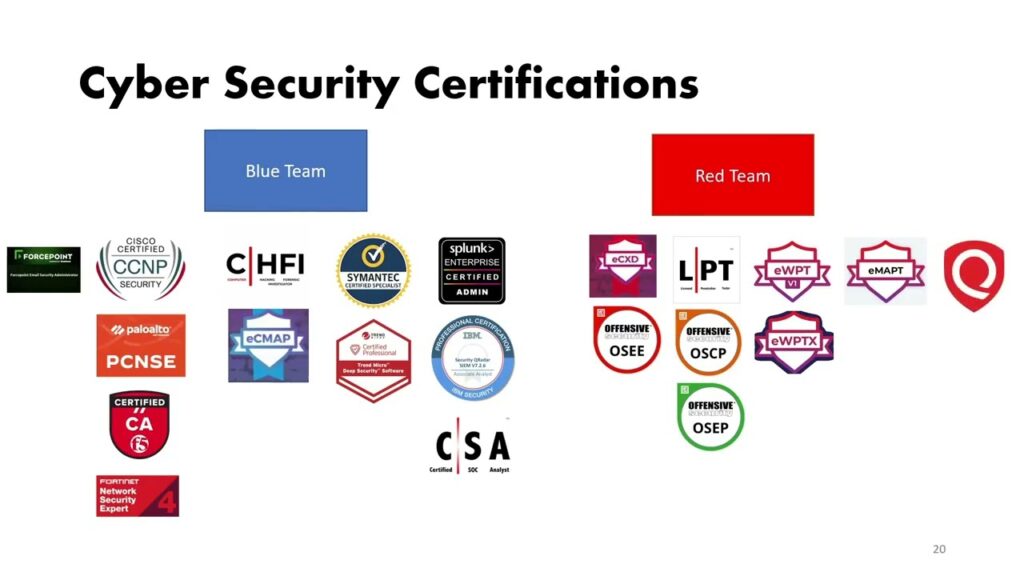In today’s rapidly evolving digital landscape, cybersecurity stands as a critical pillar for safeguarding sensitive information and maintaining trust in technology-driven businesses. Aspiring professionals in this field often find themselves at a crossroads: How do they effectively showcase their skills and establish themselves as credible experts? The answer lies in cybersecurity certifications, a recognized testament to one’s technical prowess and commitment to the industry.

This comprehensive guide will delve into the importance of cybersecurity certifications, outline the steps to earn them, and highlight how they can significantly enhance your professional profile. Whether you’re a newcomer to the field or a seasoned IT professional looking to specialize, this roadmap will provide actionable insights tailored to your journey.
Why Cybersecurity Certifications Matter
In an era where data breaches and cyber threats dominate headlines, businesses are prioritizing the recruitment of qualified cybersecurity professionals. Certifications not only validate your knowledge but also demonstrate your dedication to staying ahead in a constantly changing field.
Key Benefits of Earning Cybersecurity Certifications:
- Professional Credibility: Certifications like CISSP or CompTIA Security+ establish you as a trusted expert.
- Career Advancement: Many employers prefer or even require certifications for mid-level and senior cybersecurity roles.
- Higher Earnings Potential: Certified professionals often command higher salaries compared to non-certified peers.
- Networking Opportunities: Becoming certified connects you with a global community of professionals and opens doors to mentorship and collaboration.
- Specialization: With certifications, you can tailor your expertise to specific areas like network security, ethical hacking, or cloud security.
Step 1: Identify the Right Certification for Your Goals
The cybersecurity field offers a variety of certifications, each tailored to different skill levels, career stages, and specializations. Here’s a breakdown to help you decide:
- Entry-Level Certifications:
If you’re starting out in cybersecurity, foundational certifications are ideal for building your knowledge base:- CompTIA Security+: Covers basic concepts like threat management, risk assessment, and incident response.
- Certified Information Systems Auditor (CISA): Focuses on information systems auditing and governance.
- Intermediate-Level Certifications:
For professionals with some experience looking to advance their careers:- Certified Ethical Hacker (CEH): Teaches techniques to identify vulnerabilities from an attacker’s perspective.
- Cisco Certified CyberOps Associate: Prepares candidates for roles in Security Operations Centers (SOC).
- Advanced-Level Certifications:
These are suited for seasoned experts aiming for leadership roles:- Certified Information Systems Security Professional (CISSP): Globally recognized, covering risk management, security architecture, and more.
- Certified Cloud Security Professional (CCSP): Specializes in cloud-based security protocols.
Pro Tip: Align your choice of certification with your career aspirations. Research the roles you aim for and identify the qualifications employers prioritize.
Step 2: Prepare Strategically for Certification Exams
Once you’ve identified the right certification, preparation becomes paramount. Here’s how to approach it systematically:
- Understand the Exam Objectives:
Visit the official website of the certification provider to review the syllabus, exam structure, and prerequisites. - Enroll in Training Programs:
Leverage online platforms and in-person workshops to gain in-depth knowledge. Popular platforms include:- Cybrary: Offers free and premium cybersecurity courses.
- Coursera and Udemy: Provide instructor-led courses with flexible schedules.
- Practice with Mock Tests:
Familiarize yourself with the question formats and time constraints using practice exams. Tools like Kaplan IT Training or Boson Exam Simulators can be invaluable. - Join Study Groups:
Collaborative learning with peers not only enhances understanding but also keeps you motivated. - Stay Updated on Cybersecurity Trends:
Follow industry blogs, attend webinars, and subscribe to newsletters from organizations like SANS Institute or ISACA.
Step 3: Earn the Certification
On the exam day:
- Arrive Early: If taking the exam in-person, ensure you’re at the venue well in advance.
- Double-Check Requirements: Have the necessary identification and materials ready.
- Manage Your Time: Allocate time wisely for each question to avoid last-minute panic.
- Stay Calm: Confidence and composure can make a significant difference.
Once you pass, don’t forget to update your LinkedIn profile and resume to showcase your new credential prominently!
Step 4: Leverage Your Certification for Career Growth
Earning a cybersecurity certification is only the beginning. To truly boost your professional profile, it’s essential to actively market your credentials and use them as a stepping stone to greater opportunities.
1. Update Your Professional Profiles
- LinkedIn: Add your certification to your profile under the “Licenses & Certifications” section. Use keywords like “CISSP-certified professional” or “CompTIA Security+ expert” to improve search visibility.
- Portfolio Website: If you have a personal website, create a dedicated section showcasing your certifications along with relevant projects or case studies.
2. Network with Industry Experts
- Join communities and forums specific to your certification (e.g., CISSP forums or CompTIA user groups).
- Attend conferences like Black Hat or DEF CON to meet professionals in the field.
3. Apply for Advanced Roles
Certifications position you as a prime candidate for roles like:
- Cybersecurity Analyst
- Ethical Hacker
- SOC Specialist
- IT Security Consultant
4. Explore Freelance Opportunities
Platforms like Upwork and Toptal have a growing demand for certified cybersecurity professionals. Freelancing can also provide diverse experience in handling real-world security challenges.
Step 5: Keep Your Skills Updated
Cybersecurity is a dynamic field where threats and solutions constantly evolve. Maintaining your relevance involves continuous learning and adapting to new technologies.
Renew Your Certifications:
Many certifications, such as CISSP or CompTIA Security+, require periodic renewal. Fulfill Continuing Professional Education (CPE) requirements to keep your certification active.
Expand Your Expertise:
- Consider earning complementary certifications. For example, if you’re already CISSP-certified, you might explore CCSP for cloud security or CHFI for computer hacking forensics.
- Explore emerging areas like Artificial Intelligence in Security or Blockchain Security.
Stay Informed:
Follow trusted sources like Krebs on Security, Threatpost, or vendor-specific blogs from companies like Cisco, Palo Alto Networks, and Microsoft.
Common Challenges in Earning Cybersecurity Certifications (and How to Overcome Them)
1. Lack of Time:
- Solution: Create a study schedule and allocate at least 1–2 hours daily for focused preparation.
2. Financial Constraints:
- Solution: Look for scholarship opportunities or employer sponsorships. Many companies reimburse certification costs as part of professional development.
3. Navigating Complex Concepts:
- Solution: Simplify learning with hands-on labs and simulation environments. Platforms like Hack The Box and TryHackMe are great for practical experience.

Cybersecurity certifications are a gateway to a lucrative and impactful career. They not only validate your expertise but also set you apart in a competitive job market. From understanding the basics with CompTIA Security+ to mastering advanced topics with CISSP, each step of the certification journey builds your credibility and opens doors to exciting professional opportunities.



